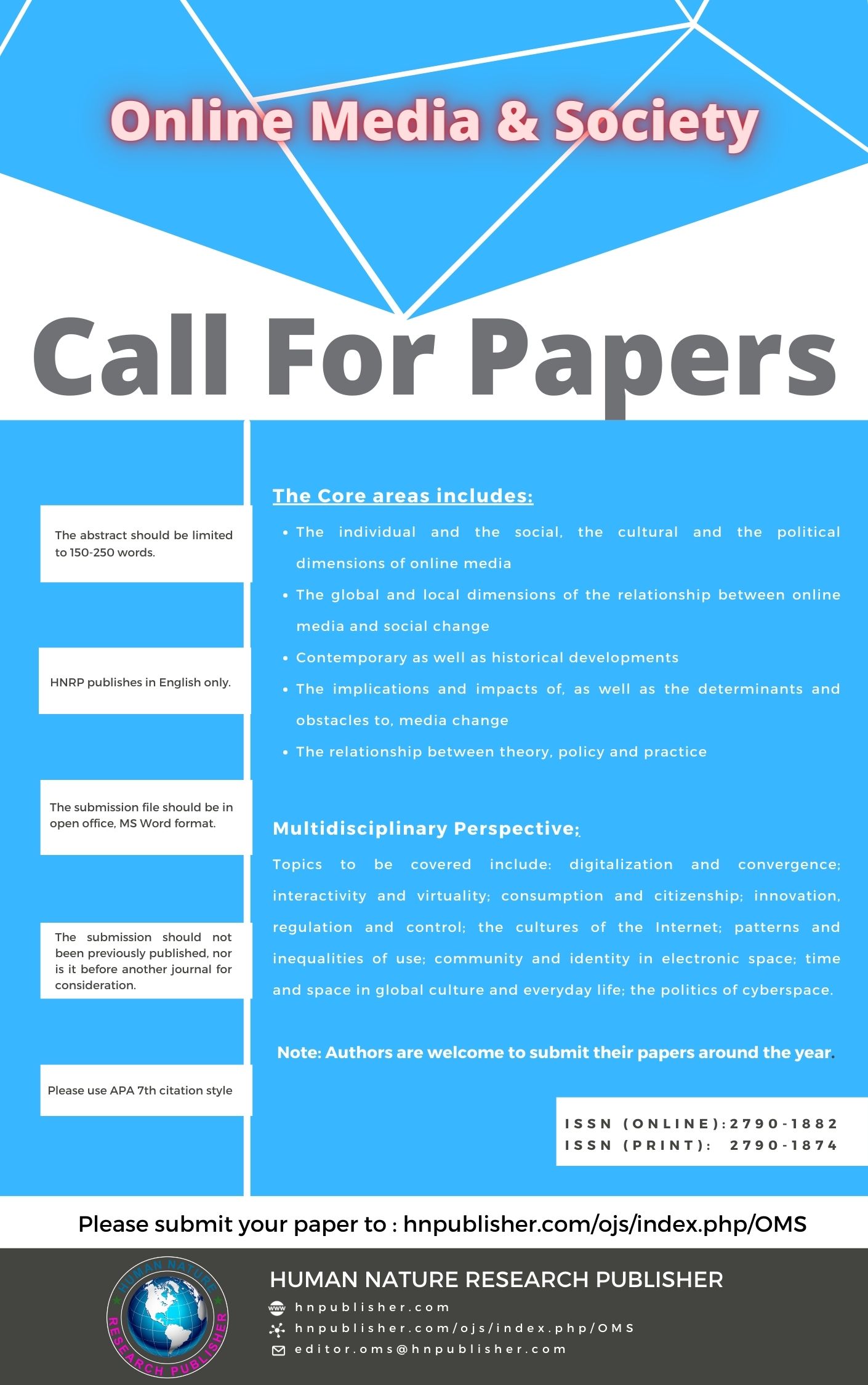Content Analysis of Twitter as Primary Tool for Promotion of Feminism among Women of Pakistan
DOI:
https://doi.org/10.71016/oms/jg2cy634Keywords:
Twitter, Feminism, Women, Tweets, Content AnalysisAbstract
Study Background: Female activism has long existed in Pakistan but reached new heights during the #MeToo and #AuratMarch movements on Twitter. There is a consistent clash between those who mean to empower women and those who aim to discourage.
Aim of Study: The aim of this study is to analyse Twitter’s mobilization in a society split between liberal and religio-political formations.
Methodology: By employing a content analysis, 400 tweets were examined via manual deductive coding and evaluated to determine emerging perspectives of feminism in Pakistani community.
Findings: The results showed a moderate effect in the opposite direction than hypothesized: Pakistani women are divided between liberal and Islamic feminism and therefore have not formed a unified entity. Furthermore, these movements only speak for those who orchestrated them: the elite-class.
Conclusion: Women with weak economic and social backgrounds were completely omitted from these feminist demonstrations. This impacts the views held by other members of society on what feminism in Pakistan is meant to be and how its agendas need to be questioned.
Downloads
Published
Issue
Section
License
Copyright (c) 2022 Maleeha Rizwan, Noma Nadeem, Dr. Rooma Shahzadi, Eman Raza (Author)

This work is licensed under a Creative Commons Attribution-NonCommercial 4.0 International License.








